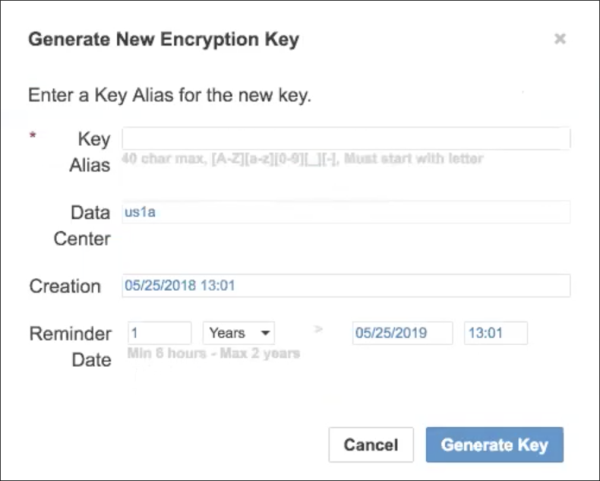Looking for Java implementation for decrypting a message encrypted using openssl -aes-256-cbc -a -salt command? Hot Network Questions MTG - Does this do an infinite combo? Likewise, you have to call AESsetdecryptkey (.) to setup the AES Structure required to decrypt data using the OpenSSL API; OpenSSL and AES Encryption (Options) I found a couple of different APIs that can be used to perform AES Encryption using OpenSSL.
- Openssl Generate Aes 256 Keys
- Openssl Generate Aes 256 Key
- Openssl Generate Aes 256 Key Base64
- Openssl Generate Aes 256 Key Size
- Openssl Generate Random Aes 256 Key

- # openssl genrsa -aes256 -out domain.key 4096. Or # openssl genrsa -aes256 -out domain.key 2048. Enter pass phrase for domain.key. Note: Write this down and make sure you keep it in a safe place or memorize it. Once you have typed your password, it will generate your private key. Generating a CSR Request for SSL Certificate.
- I'm not aware of one. If you're going to integrate a crypto library into your project, then you can use OpenSSL for AES-GCM. Note that the cipher you're choosing here is only being used to encrypt the private key (and I see no particularly compelling reason for a private key to be encrypted using AES-GCM).
Symmetic encryption
For symmetic encryption, you can use the following:
To encrypt:
To decrypt:
Asymmetric encryption
For Asymmetric encryption you must first generate your private key and extract the public key.
To encrypt:
To decrypt:
Encrypting files
You can't directly encrypt a large file using rsautl. Instead, do the following:

- Generate a key using
openssl rand, e.g.openssl rand 32 -out keyfile. - Encrypt the key file using
openssl rsautl. - Encrypt the data using
openssl enc, using the generated key from step 1. - Package the encrypted key file with the encrypted data. The recipient will need to decrypt the key with their private key, then decrypt the data with the resulting key.
Ultimate solution for safe and high secured encode anyone file in OpenSSL and command-line:
Private key generation (encrypted private key):
With unecrypted private key:
With encrypted private key:
With existing encrypted (unecrypted) private key:
Encrypt a file
Encrypt binary file:
Openssl Generate Aes 256 Keys
Encrypt text file:

Openssl Generate Aes 256 Key
What is what:
Openssl Generate Aes 256 Key Base64
smime— ssl command for S/MIME utility (smime(1)).-encrypt— chosen method for file process.-binary— use safe file process. Normally the input message is converted to 'canonical' format as required by the S/MIME specification, this switch disable it. It is necessary for all binary files (like a images, sounds, ZIP archives).-aes-256-cbc— chosen cipher AES in 256 bit for encryption (strong). If not specified 40 bit RC2 is used (very weak). (Supported ciphers).-in plainfile.zip— input file name.-out encrypted.zip.enc— output file name.-outform DER— encode output file as binary. If is not specified, file is encoded by base64 and file size will be increased by 30%.yourSslCertificate.pem— file name of your certificate's. That should be in PEM format.
Openssl Generate Aes 256 Key Size
That command can very effectively a strongly encrypt any file regardless of its size or format.
Decrypt a file
Decrypt binary file:
For text files:
What is what:
-inform DER— same as-outformabove.-inkey private.key— file name of your private key. That should be in PEM format and can be encrypted by password.-passin pass:your_password— (optional) your password for private key encrypt.
Verification
Creating a signed digest of a file:
Openssl Generate Random Aes 256 Key
Verify a signed digest: